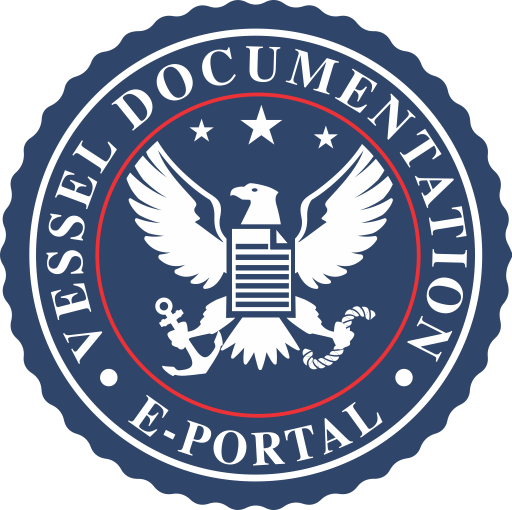Vessel documentation is a vital component of maritime operations in the United States, providing legal recognition, enhanced security, and eligibility for certain trade routes and endorsements. However, not all vessels are required to go through the process of documentation.
Understanding which vessels are exempt can save vessel owners time, effort, and resources, ensuring compliance with US Coast Guard (USCG) regulations without unnecessary documentation requirements. Some vessels are exempt from documentation and there are situations where documentation is not required.
Exemptions Based on Vessel Size
One of the primary criteria for determining whether a vessel must be documented is its weight. The USCG uses a measurement called “net tonnage” to assess vessel size. Vessels that measure less than five net tons are categorically exempt from documentation.
Net tonnage refers to the internal volume of the vessel and is not directly related to its actual weight. Smaller recreational boats such as canoes, kayaks, or small fishing boats typically fall into this category due to their limited capacity and size. Since these vessels are used primarily for personal or recreational purposes, the requirement for formal documentation is waived.
For vessel owners unsure about how to measure net tons, resources are available to accurately determine whether your vessel’s size qualifies for exemption.
Ownership and Citizenship Requirements
Another critical factor in determining exemption is ownership. The USCG requires that vessels eligible for documentation be wholly owned by U.S. citizens. Vessels owned by foreign nationals or non-citizen entities are not eligible for documentation under current regulations.
This exemption is particularly important for vessels operating within U.S. waters that may not need to participate in specific trades or regulated activities. For example, foreign-owned vessels visiting U.S. ports temporarily or engaging in international trade are often exempt from documentation as long as they meet other compliance laws.
Navigational and Operational Scope
Even vessels that meet the size and ownership criteria for documentation may be exempt if their operations are limited to non-regulated waters. The following conditions often lead to exemption from documentation requirements:
- Non-navigable waters: Vessels exclusively operating on private lakes, ponds, or waterways that are not connected to U.S. navigable waters do not require documentation.
- State registration: For vessels that stay within a single state’s jurisdiction and do not engage in interstate or international trade, state registration is typically sufficient. Owners should consult their respective state maritime authorities for more information on registration requirements.
Vessels engaging in activities limited to internal state commerce, such as small ferries operating exclusively within a harbor or river system, are generally exempt as well.
Specific Exemptions for Coastwise Trade Vessels
Certain vessels engaged in coastwise trade may also be exempt, even if they meet size and ownership requirements. Non-self-propelled vessels, such as barges and other towable vessels used within harbor limits, rivers, or state canals, do not need to be documented unless they operate on the Great Lakes.
These exemptions are designed to simplify the regulatory process for simpler operations that do not involve trans-oceanic or interstate trade.
Recreational Vessels and Documentation
Recreational vessels hold a unique position regarding documentation requirements. While any recreational vessel of at least five net tons wholly owned by U.S. citizens is eligible for documentation, documentation is not mandatory unless the vessel is used for commercial purposes (e.g., charter fishing, ferrying passengers).
Recreational vessels under five net tons or those used solely for leisure and personal enjoyment can avoid the documentation process altogether.
That said, some recreational vessel owners opt for documentation even when not required to do so, as it provides benefits like international recognition and easier transactions for loans or sales.
Foreign-Built Vessels
An additional exemption applies to foreign-built vessels that do not meet U.S. construction requirements. A vessel must meet strict U.S. build standards to qualify for endorsements such as coastwise or fisheries under U.S. documentation laws. Foreign-built vessels lacking the appropriate certifications are often exempt from documentation, provided they do not engage in regulated activities like U.S. domestic trade or resource harvesting.
Additional Guidelines for Documentation Removal
If a vessel no longer meets the criteria for documentation or ceases to be used in activities requiring documentation, vessel owners can initiate the removal of documentation through official USCG channels. This process allows for the voluntary deletion of vessel documentation, effectively exempting the vessel from further compliance with documentation laws.
For instance:
- Vessels transitioning from commercial to recreational use and no longer meeting the operational or trade criteria.
- A vessel formally sold or transferred to a non-citizen entity.
The USCG provides a straightforward Deletion of Certificate of Documentation process, helping owners manage this transition smoothly.
Ensuring Compliance
While exemptions provide relief, understanding when documentation is required remains crucial. Some vessel owners mistakenly operate without proper documentation, not realizing their vessels fall outside exemption criteria. Common situations necessitating documentation include:
- Commercial operations such as transporting goods, passengers, or engaging in fisheries.
- Operation in navigable U.S. waters or participation in international trade.
- Activities requiring endorsements for coastwise or recreational purposes.
To avoid penalties, it is advisable to consult with maritime experts or services. Here at CG Portal, we specialize in managing vessel documentation, renewals, and deletions. These services can guide owners through the regulatory landscape, ensuring ongoing compliance.
Documentation Resources and Assistance
CG Portal provides comprehensive assistance to vessel owners navigating documentation requirements. Our services cover everything from determining eligibility and exemptions to renewing documentation and applying for endorsements. Whether you’re a recreational boater or a commercial operator, our team simplifies the process, ensuring peace of mind.
Still not sure if your vessel qualifies for exemption? Reach out today, and we’ll help you determine the best course of action for your vessel’s needs. Managing maritime requirements doesn’t have to be complicated, and with CG Portal, you’ll always be on the right course.
